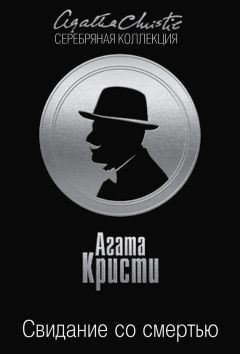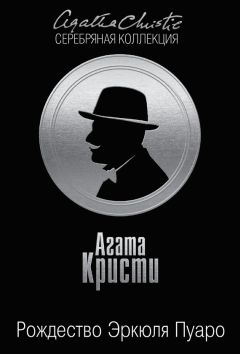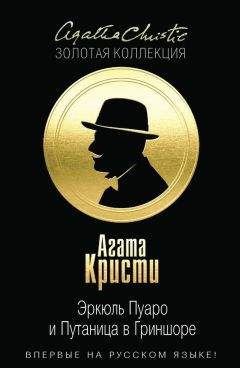Arthur Conan Doyle - Английский язык с Шерлоком Холмсом. Собака Баскервилей
The only conceivable motive was that (единственным вероятным мотивом был тот; conceivable — мыслимый; возможный) which had been suggested by Sir Henry (который предложил сэр Генри), that if the family could be scared away (что если отпугнуть наследников: «семью» /от Баскервиль-холла/) a comfortable and permanent home would be secured for the Barrymores (для Бэрриморов будет обеспечено комфортное и долговременное существование: «жилище»; permanent — постоянный, неизменный; долговременный; перманентный). But surely such an explanation as that would be quite inadequate (но, конечно же, такое объяснение было бы совершенно недостаточным) to account for the deep and subtle scheming (/если/ учитывать те глубокие и коварные интриги; to account for smth. — отчитываться /в чем-либо/; давать отчет /в чем-либо/) which seemed to be weaving an invisible net round the young baronet (которые, казалось, невидимой сетью оплетали молодого баронета; to weave — ткать; плести). Holmes himself had said that no more complex case had come to him (Холмс сам сказал, что ему не попадалось дело более сложное) in all the long series of his sensational investigations (во всей длинной истории его сенсационных расследований; series — ряд; последовательность). I prayed, as I walked back along the grey, lonely road (я молился, когда возвращался назад унылой пустынной дорогой; to walk — идти /пешком/), that my friend might soon be freed from his preoccupations (чтобы мой друг мог скорее освободиться от своих забот) and able to come down to take this heavy burden of responsibility from my shoulders (и приехать /сюда, чтобы/ снять эту тяжелую ношу ответственности с моих плеч; to be able — мочь, быть в состоянии).
conceivable [kǝnˈsi:vǝbl], permanent [ˈpǝ:mǝnǝnt], burden [bǝ:dn]
The only conceivable motive was that which had been suggested by Sir Henry, that if the family could be scared away a comfortable and permanent home would be secured for the Barrymores. But surely such an explanation as that would be quite inadequate to account for the deep and subtle scheming which seemed to be weaving an invisible net round the young baronet. Holmes himself had said that no more complex case had come to him in all the long series of his sensational investigations. I prayed, as I walked back along the grey, lonely road, that my friend might soon be freed from his preoccupations and able to come down to take this heavy burden of responsibility from my shoulders.
Suddenly my thoughts were interrupted (внезапно мои мысли были прерваны) by the sound of running feet behind me (звуком бегущих ног позади меня) and by a voice which called me by name (и голосом, который звал меня по имени). I turned, expecting to see Dr. Mortimer (я обернулся, ожидая увидеть доктора Мортимера), but to my surprise it was a stranger (но, к моему удивлению, это был незнакомец) who was pursuing me (который бежал за мной; to pursue — преследовать; бежать /за кем-либо/). He was a small, slim, clean-shaven (он был невысок, худощав, чисто выбрит; to shave — брить), prim-faced man, flaxen-haired and lean-jawed (со строгим лицом, светлыми волосами и тонкогубым ртом; prim — натянутый, чрезмерно строгий; flaxen — льняной; flax — лен; lean — тощий, худой; jaw — челюсть; рот), between thirty and forty years of age (между тридцатью и сорока годами), dressed in a grey suit and wearing a straw hat (одетый в серый костюм и соломенную шляпу; to wear — носить /одежду/). A tin box for botanical specimens hung over his shoulder (оловянная коробка для ботанической коллекции висела у него через плечо; specimen — образец; экземпляр) and he carried a green butterfly-net in one of his hands (и в одной руке он нес = держал зеленый сачок для ловли бабочек).
thought [Ɵɔ:t], stranger [ˈstreɪndʒǝ], butterfly [ˈbʌtǝflaɪ]
Suddenly my thoughts were interrupted by the sound of running feet behind me and by a voice which called me by name. I turned, expecting to see Dr. Mortimer, but to my surprise it was a stranger who was pursuing me. He was a small, slim, clean-shaven, prim-faced man, flaxen-haired and lean-jawed, between thirty and forty years of age, dressed in a grey suit and wearing a straw hat. A tin box for botanical specimens hung over his shoulder and he carried a green butterfly-net in one of his hands.
"You will, I am sure, excuse my presumption, Dr. Watson (вы, я уверен, простите мою дерзость, доктор Ватсон; presumption — предположение, допущение; самонадеянность, самомнение, самоуверенность; наглость, нахальство)," said he, as he came panting up to where I stood (сказал он, когда подошел, запыхавшись, к /тому месту/, где я стоял; to pant — задыхаться, часто и тяжело дышать). "Here on the moor we are homely folk (здесь на болотах мы народ простой; folk — люди; народ) and do not wait for formal introductions (и не ждем, /когда нас/ представят официально). You may possibly have heard my name from our mutual friend, Mortimer (вы, возможно, слышали мое имя от нашего общего друга, Мортимера). I am Stapleton, of Merripit House (я Стэплтон из Меррипит-хаус)."
"Your net and box would have told me as much (ваши сачок и коробка так же много бы сказали мне)," said I, "for I knew that Mr. Stapleton was a naturalist (поскольку я знал, что мистер Стэплтон натуралист). But how did you know me (но откуда вы знаете меня)?"
"I have been calling on Mortimer (я зашел к Мортимеру; to call on — заходить, посещать), and he pointed you out to me from the window of his surgery (и он показал: «указал на» вас мне из окна своей приемной) as you passed (когда вы проходили /мимо/). As our road lay the same way (поскольку наши пути лежат в одном и том же направлении; to lie — лежать; way —путь; направление) I thought that I would overtake you and introduce myself (я подумал, что /могу/ догнать вас и представиться лично). I trust that Sir Henry is none the worse for his journey (надеюсь, что сэр Генри в добром здравии: «ему ничуть не хуже» после путешествия)?"
"He is very well, thank you (он прекрасно себя чувствует, спасибо; well — здоровый)."
"We were all rather afraid (мы все весьма опасались; rather — лучше; весьма, в значительной степени) that after the sad death of Sir Charles (что после печальной смерти сэра Чарльза) the new baronet might refuse to live here (новый баронет может отказаться жить здесь). It is asking much of a wealthy man (требуется много от богатого человека = не каждый состоятельный человек сможет) to come down and bury himself in a place of this kind (приехать /в захолустье/ и похоронить себя в /таком/ месте, как это; to come down — спускаться; приезжать из центра на окраину), but I need not tell you (и мне не нужно вам рассказывать) that it means a very great deal to the country-side (как много это значит для всей округи). Sir Henry has, I suppose, no superstitious fears in the matter (у сэра Генри, я полагаю, нет суеверных страхов /по поводу/ этой истории: «в этом деле»; superstition — суеверие)?"
"I do not think that it is likely (я думаю, вряд ли: «не думаю, что это возможно»)."
presumption [prɪˈzʌmpʃ(ǝ)n], mutual [ˈmju:tjuǝl], surgery [ˈsǝ:dʒ(ǝ)rɪ]
"You will, I am sure, excuse my presumption, Dr. Watson," said he, as he came panting up to where I stood. "Here on the moor we are homely folk and do not wait for formal introductions. You may possibly have heard my name from our mutual friend, Mortimer. I am Stapleton, of Merripit House."
"Your net and box would have told me as much," said I, "for I knew that Mr. Stapleton was a naturalist. But how did you know me?"
"I have been calling on Mortimer, and he pointed you out to me from the window of his surgery as you passed. As our road lay the same way I thought that I would overtake you and introduce myself. I trust that Sir Henry is none the worse for his journey?"
"He is very well, thank you."
"We were all rather afraid that after the sad death of Sir Charles the new baronet might refuse to live here. It is asking much of a wealthy man to come down and bury himself in a place of this kind, but I need not tell you that it means a very great deal to the country-side. Sir Henry has, I suppose, no superstitious fears in the matter?"
"I do not think that it is likely."
"Of course you know the legend of the fiend dog (вы, конечно же, знаете легенду о дьявольской собаке) which haunts the family (которая преследует /их/ род)?"
"I have heard it (я слышал ее)."
"It is extraordinary how credulous the peasants are about here (удивительно, насколько доверчивы/легковерны жители нашей округи; extraodinary — выдающийся; удивительный)! Any number of them are ready to swear (многие из них готовы поклясться; any number of — немало, много) that they have seen such a creature upon the moor (что они видели такую тварь на болотах)." He spoke with a smile (он говорил с улыбкой), but I seemed to read in his eyes (но мне показалось, я прочел в его глазах) that he took the matter more seriously (что он воспринимает эту историю намного серьезнее). "The story took a great hold upon the imagination of Sir Charles (эта история всецело владела воображением сэра Чарльза; to take a hold — овладеть), and I have no doubt that it led to his tragic end (и у меня нет сомнений, что она /и/ привела его к трагическому концу)."
"But how (но как)?"
"His nerves were so worked up (его нервы были настолько напряжены; to work up — разрабатывать; возбуждать) that the appearance of any dog (что появление любой собаки) might have had a fatal effect upon his diseased heart (могло иметь роковое влияние на его больное сердце). I fancy that he really did see something of the kind (я думаю, что он и вправду увидел что-то похожее) upon that last night in the Yew Alley (в тот /его/ последний вечер в тисовой аллее). I feared that some disaster might occur (я боялся, что может произойти какое-то несчастье), for I was very fond of the old man (потому что я очень любил старика), and I knew that his heart was weak (и я знал, что у него слабое сердце)."
"How did you know that (а откуда вы это знали)?"
"My friend Mortimer told me (мой друг Мортимер рассказал мне)."
haunt [hɔ:nt], matter [ˈmætǝ], disaster [dɪˈzɑ:stǝ]
"Of course you know the legend of the fiend dog which haunts the family?"
"I have heard it."
"It is extraordinary how credulous the peasants are about here! Any number of them are ready to swear that they have seen such a creature upon the moor." He spoke with a smile, but I seemed to read in his eyes that he took the matter more seriously. "The story took a great hold upon the imagination of Sir Charles, and I have no doubt that it led to his tragic end."
"But how?"
"His nerves were so worked up that the appearance of any dog might have had a fatal effect upon his diseased heart. I fancy that he really did see something of the kind upon that last night in the Yew Alley. I feared that some disaster might occur, for I was very fond of the old man, and I knew that his heart was weak."




